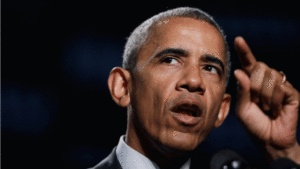by WorldTribune Staff, August 15, 2016
America’s major allies are calling on President Barack Obama not to change U.S. nuclear weapons policy.
Japan, South Korea, France and the UK have all signaled their opposition to Obama’s planned “no first use” policy for the United States.

Obama’s “last-minute drive for a foreign-policy legacy is making U.S. allies nervous about their own security. Several allied governments have lobbied the administration not to change U.S. nuclear-weapons policy by promising never to be the first to use them in a conflict,” Washington Post columnist Josh Rogin wrote on Aug. 14.
Japan is said to believe that Obama’s policy would increase the risk of conflict in the region, particularly in the case of North Korea. Japanese Prime Minister Shinzo Abe “personally conveyed that message” to Adm. Harry Harris Jr., the head of U.S. Pacific Command, according to government officials.
Europe, meanwhile, doesn’t want “any daylight between their nuclear policies and those of the United States, especially since Britain, France and the United States all are permanent members of the U.N. Security Council. In the case of an emergency, those differences could cause real coordination problems,” Rogin wrote.
“It’s my understanding that the defense ministries of many of our allied nations have lobbied the White House against changing this doctrine, and there’s been particularly strong opposition from the UK, France, Japan and South Korea,” said Joe Cirincione, president of the Ploughshares Fund, an anti-proliferation advocacy group that supports the policy change. “We have an interest in creating an international norm that no one should use nuclear weapons first. The allies lobbying against it are nervous nellies.”
Republicans in Congress vehemently oppose the “no first use” policy and are highly critical of the Obama administration’s plans to seek a U.N. Security Council resolution calling on all states to refrain from nuclear testing. “They don’t believe such moves are appropriate this close to the arrival of a new administration and without legislative advice and consent,” Rogin wrote.
As he approaches the end of his presidency, Obama is said set to announce his nuclear policy in September in his final appearance at the U.N. General Assembly, officials said.
An administration official told the Post’s Rogin that, “in part because of allied concerns, the internal push on ‘no first use’ was not gaining traction.”
“While the goal of a ‘no first use’ policy is correct — to never be the first country to launch a cataclysmic nuclear strike — doing so unilaterally could run the risk of weakening our allies’ confidence in our security guarantees. This would not be in our interest,” said Joel Rubin, a former Obama administration State Department official.
Several allies believe that if the United States takes a nuclear first strike off the table, “the risk of a conventional conflict with countries such as North Korea, China and Russia could increase,” Rogin wrote. “Regimes that might refrain from a conventional attack in fear of nuclear retaliation would calculate the risks of such an attack differently.”
“North Korea understands that any conventional attack will be met with a devastating response, but it doesn’t have to be a nuclear response,” said Arms Control Association executive director Daryl Kimball. “If we don’t need to use nuclear weapons to retaliate against North Korea, why should we?”
Rogin wrote: “The same question could be asked the other way. If all U.S. allies believe a ‘no first use’ policy weakens deterrence and increases the risk of armed conflict without producing any benefits, why should we do it? Advancing Obama’s personal legacy isn’t a good enough reason.”
